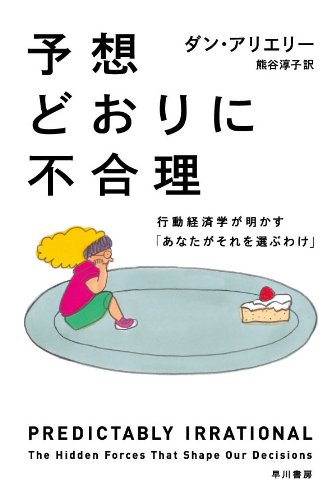- Published on
Why do your belongings look junk to others? ~Three troublesome habits brought about by "a sense of ownership"
Source: Dan Ariely, "Absolutely as Imaginable" (Hayakawa Publishing)
Roughly speaking
- The reason why your second-hand clothing cannot be sold at the price you expect on a flea market app is because of the "holding effect" that you overestimate its value.
- We are trapped in three troublesome assumptions: (1) fall in love with our own, (2) fear of losing, and (3) we must have the same values as others.
- The key to breaking this curse is to have a "virtual, non-owned" perspective asking yourself, "If you don't have it, how much would you buy?"
Introduction: Why is your "suggested price" always too high?
He decides to organize his closet, and in high spirits he sells clothes he bought several years ago on a flea market app. "I've worn it very few times and it was originally expensive..." You put a slightly bullish price on your face. However, no matter how many days passed, the "likes" were not given, and sometimes they only negotiate a major price reduction. I wonder if you think this way. "I have no vision to see this value."
Unfortunately, it may be yours who have no eye on you, not the other person. As Dan Ariely revealed in "Expectedly Absurd," once we "own" something, we cannot objectively judge its value. This is a deep-rooted habit of a mind called the "holding effect (ownership effect)."
The hopeless disconnect between those with tickets and those who don'ts
This effect was Arielly's experiment with basketball tickets at Duke University. He distributed tickets to the hard-to-find popular matches to students in a lottery for free.
He then asked the lucky student who got the ticket, "How much would you like to sell?", while asking the student who was not in the lottery but wanted a ticket, "How much would you buy?" Logically speaking, the prices for both should be close. However, the results were surprising.
Sellers offer an average of 2,400. In contrast, the buyer's offer is only 170$. The difference has been 14 times greater. Once the ticket has become "your own" it has been transformed into a "treasure" with special value, rather than just a ticket for the owner.
Why do we overestimate our own? Three annoying habits
Ariely explains why this strange psychology is born as three "quirks."
Found "love" with your own: The owner focuses on the memories and attachments associated with the item. A fun date going out wearing those clothes, and a sense of satisfaction from the hard work I got... Positive memories that are invisible to the buyer add value.
Focus on "losing": Humans are designed to feel the pain of losing something more strongly than the joy of gaining something (loss aversion). For sellers, letting go of tickets is painful, "losing the amazing experience of watching a game." Therefore, unless the price is too high enough to compensate for the pain, you won't be able to let go.
** "Misunderstanding" others have the same perspective:** Sellers unconsciously assume that the buyer, just like them, must understand the wonderful value and background that the item has. But for buyers, that's just one of many options. This discrepancy in perspective creates a huge price difference.
[Improvement proposal] Regaining an objective perspective by "virtual non-owning"
Arielie herself suggests how to escape this troublesome bias. The idea is "virtual non-ownership." When you're unsure about selling something, or when you feel like you're stuck with your opinion, ask yourself:
"If I didn't have this, how much would I want to pay to get this now?"
This question temporarily puts you in the "non-owner" position and separates you from your emotional attachment. By keeping this psychological distance, it will be easier to make more objective and close to market prices.
Conclusion: Is that "demand" really worth it?
The effect of holding is not just about priced items. Our "opinions" and "old-fashioned ways" are also strongly influenced by this effect. Just because it lasts for so long, we overestimate it and feel excessive pain in letting it go.
Your belongings, your opinions, your career. Why not look at them as "virtual non-owners"? It may not be as valuable as you think it is. And acknowledging this is the first step towards gaining new value.
[Actions to encourage action] Why do your child look the cutest? The answer lies in "as expected, irrational." Take a look into the abyss in this book how the feeling of possession distorts our judgment. Many clever experiments will surely overturn your "natural."

